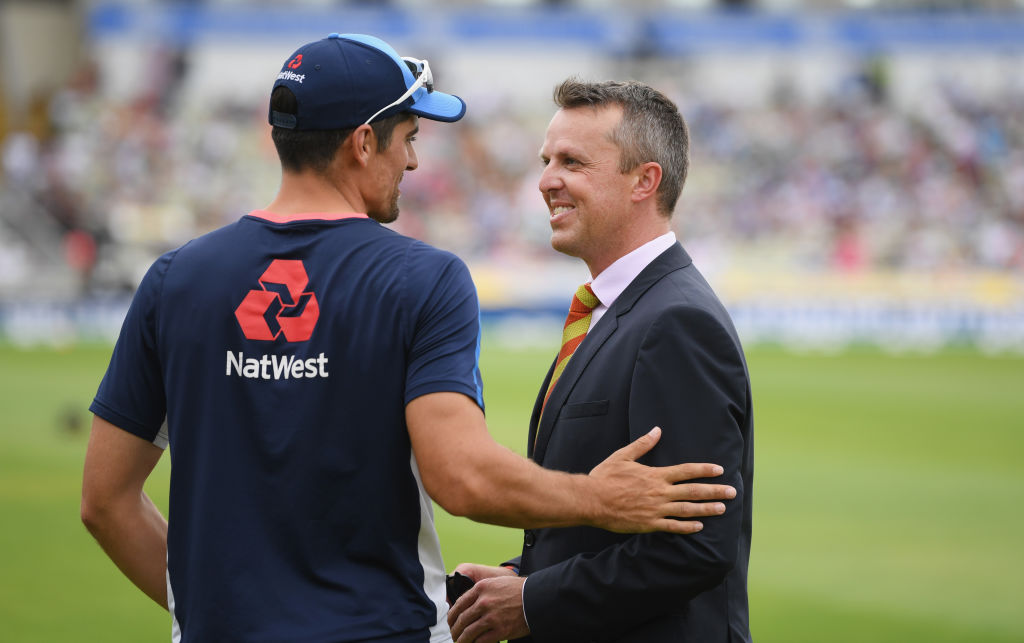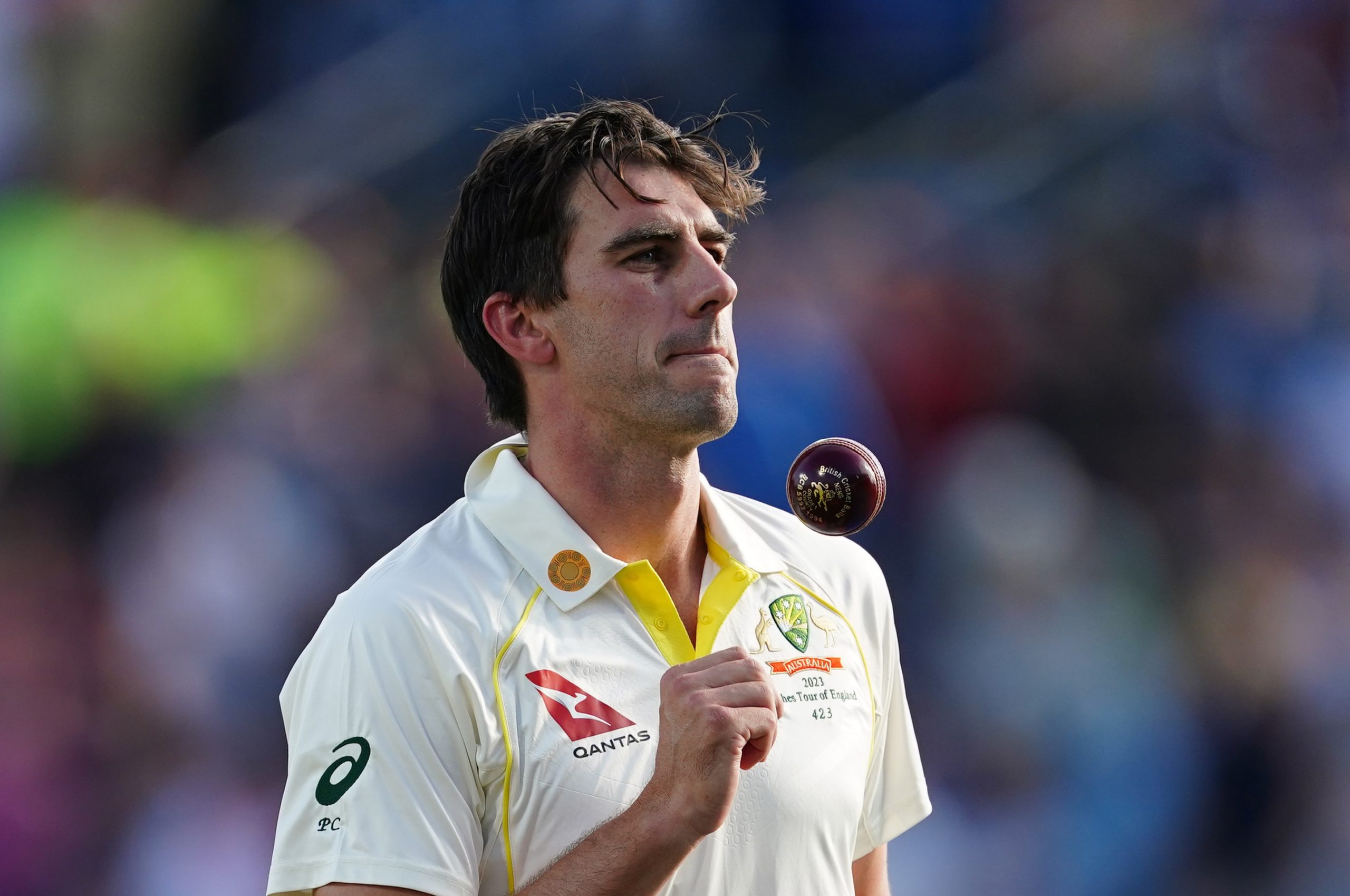
By Isabelle Westbury
ONE of the most beautiful things about sport is the power that it can have over people. Over normally rational, practical human beings. The same human beings who, when another performs a specific action hundreds of thousands of miles away, might howl in despair.
Their mood, outlook and even philosophy can be changed in an instant. England’s footballers are notorious for having the effect of causing thousands of grown men to cry simultaneously, a feat as yet unrivalled by any other action.
It is a phenomenon which the best sports journalists can reflect in their coverage. Which is also why when Graeme Swann, commentating on an exciting climax to the first Test against India in Edgbaston, told listeners that he had “something to get off my chest”, we listened attentively. Swann, one of cricket’s characters, likes to entertain. He did not disappoint.
“I’ve got a little observation,” started Swann, gearing up. “[Stuart Broad] was marched in front of the Sky Sports cameras and asked by one of their commentators, ‘our senior players, there must be a lot of pressure on you today going into the final day?’”
“What good is that doing Stuart Broad?” Swann raged, before describing his disgust at having had
to do a similar interview as a player. “What right have they got before a day’s play to talk? I hate it. It really winds me up. I saw Stuart Broad being frogmarched over there by the England media man. He shouldn’t be doing it before a day like this.”
“I’m not having a go at the interviewer, that’s their job to do it, to ask the questions that shouldn’t be asked,” mused Swann. “But what good to England’s chances is it on the final day, an hour before play when [Broad] has answered questions and is getting ready to bowl to win England a Test match?”
On some occasions, in certain sports and in certain circumstances, it is important to all involved that everything is conditioned for an athlete to perform at their very best. When the competitors to the men’s 100m final of the World Championships lined up on the start line at the Olympic Stadium in Berlin on an August evening in 2009, there was but one goal in mind: a world record.
Everything that the athletes, their support team, the administrators and the media could do to facilitate such an achievement within the bounds of the sport’s regulations, was done. No individual was prioritised, their starting blocks allocated according to previous heats.
When one man, Usain Bolt, did then break the world record, the world looked on in shock and awe. In achieving that feat, Bolt was able to provide onlookers with something never achieved before – it made for compelling, and entertaining, viewing.
If Bolt had been interviewed just before he had attempted this feat and he had felt that it had detracted from his performance, both he and we might have felt aggrieved. This however is rarely a reason we watch cricket. Exceptional skill is part of its allure at the highest level, but most of all we want a contest.
Unlike a sprint, where it is athlete against inanimate clock, cricket is a contest between two sides where the outcome is uncertain, sometimes unexpected and hopefully close. We want a fight, and some character – an irony in that it is figures like Swann, animated, emotive and forthright, that endear the sport to so many.
Racing driving is another example of a sport in which the battle is as important as the outcome itself. No one remembers how quickly it took Lewis Hamilton to complete the allocated number of laps at Silverstone, but fans take great delight in the manner in which he is able to sneak inside one car, beat another at the corner, and use a well-timed pit stop to gain an advantage over someone else.
It is also why, 30 seconds before committing life and limb to this pursuit, professional racing drivers are routinely interviewed for their inner thoughts, tactics and ambitions just as the adrenaline is pumping at its highest. It sets the scene, heightens the drama and lures us all in.

(photo: Mark Thompson/Getty Images)
Despite Swann’s protestations, media commitments are part of the job of the modern athlete; revenues from media coverage are one of the reasons these athletes are so well remunerated. A well-constructed media presence can also broaden the appeal of the sport – something cricket is currently sorely in need of.
Understanding how an athlete might try and prevail over another is compelling, and precisely why we wanted to hear from Stuart Broad moments before he sought to use a combination of skill, tactics and mental alacrity to overcome his opponent, who was seeking to do the same. If we could have heard from Dinesh Karthik, the batter he was about to face, then all the better.
It might have prevented Swann making his second point too. Media are not here to further one team’s cause over the other. Granted, all outlets now have former professionals, accustomed to one-sided, patriotic perspectives of their opponents, and they give great insight to that frame of mind. No one expects complete impartiality. However the media, as a whole, and especially the BBC, are not there to take sides. They are there to cover the sport, for all viewers, from any side, to enjoy and understand. They are not cheerleaders.
This misunderstanding of the media is a widening issue in professional sport. Increasingly, many changing rooms believe that there is a distinct “them” and “us”. Some now in the media do not help the proliferation of this viewpoint, former England captains included.
There was a time when cricketers and journalists had similar salaries, frequented the same bars, dressed similarly and talked about the same hobbies. On tours they partied together, drank together and often dined together. Peter Roebuck was notorious for winkling out the innermost thoughts of even the most famous cricketers.
At times now the separation appears to have reached extreme levels. Jonathan Agnew, one of the world’s most respected cricket broadcasters, had to effectively doorstep Virat Kohli after the first Test in order to get some comments. Agnew’s obvious surprise, and ensuing delight, at getting an interview was uncomfortable.
These attitudes, from Kohli, from the BCCI, not only obstructs the media from doing their job, but it detracts from the role of sport. Sport is not one thing to one man; it is instead a versatile offering, which can and should be many things to many women, men, boys and girls.


















